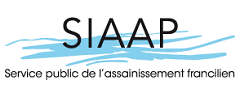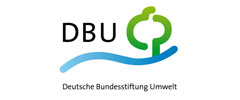Cooperation for sustainable rural development in the Ukraine
Involving citizens and local authorities in rural Ukraine in improvement of drinking water, sanitation and agriculture.
25.05.2004

Location :
- 3 rural villages/towns in three different parts of Ukraine:
- Gozhuly village, Poltava oblast. (Center of Ukraine)
- Bobrik village, Nizhin rayon, Chernihivska oblast (North-Western Ukraine, the province most contaminated with radionuclides due to Chernobyl)
- Vorohta town, Yaremche rayon, Ivano-Frankist Oblast (Western Ukraine)
Key problems
The detailed problems this project will address are:- Low level of living standards and social and economic development of rural villages in Ukraine;
- Low level of knowledge and experience in effective public participation and cooperation between authorities and citizens to improve local situations
- Lack of knowledge on the relationship between health and environmental pollution
- Lack of knowledge about affordable solutions, alternative techniques, to solve pollution problems
- no clean drinking water provision
- no waste management for latrines, waste-water, farm-waste
- low level of employment both in the public and private sector
- large-scale inefficient subsistence-farming and lack of knowledge on increasing income from sales of agricultural produce
- lack of knowledge about the relationship between environment and health, sources of contamination and how to avoid contamination.
- pollution of drinking water, particularly with nitrates and micro-bacteriological pollution
- higher level of mortality and morbidity of the population, especially effecting small children
- depletion of living conditions as a basis for sustainable economic and social development
Overall objectives
- Contribute to an improvement of the health of vulnerable groups in rural Ukraine through better sanitation, agriculture and drinking water
- Contribute to a greater amount of self-initiative and citizenís based activities for development of the rural areas in Ukraine
- Contribute to sustainable economic, social and environmental development in rural Ukraine
- Contribute to increased and well qualified participation of women in local policy making
Project goal
Empower key target groups of rural citizens in 3 rural communities, as well as their local authorities to play an effective and stimulating role in societal transformation by carrying out practical replicable improvement projects in the areas of water, sanitation and agriculture, which have a direct benefit for the economic and health situation of the 3 rural communities, and strengthen participation of women in this process.Project results
1) A well-managed cooperation project with good communication between the project partners, the local authorities and the experts2) A basis for successful pilot project implementation has been created by in-depth survey and test results, a working structure in the form of 3 village project committees as well as at least 14 educational materials
3) At least 300 members of the target group, project partners and representatives of local (and national) NGOs and authorities have been trained on how to improve drinking water, waste treatment and agriculture and how to manage the implementation of these changes
4) Local knowledge and experience of the target group has been integrated in finding solutions for better agriculture, better sanitation and better water provision
5) Five replicable pilot projects have been implemented as an example of low-cost high-benefit solutions for sustainable rural development:
- 3 working Models of an Eco-San Toilet in the 3 project areas and developing conditions for the local production at larger scale by local companies
- 1 working Model of a filter, to provide water for vulnerable groups
- 10 cleaned wells in Vorohta and Milodorava and developing conditions for local companies to use this method for well-cleaning
- 1 pilot project for the improvement of the central drinking water and waste water system of Vorohta town
- 2 start-up project of organic agriculture in Kolishyky village and Milodorava village.
7) Enhanced knowledge, exchange and cooperation between 6 rural water authorities in Ukraine and in the Netherlands and between 6 rural farmers and Dutch organic farmers and traders
8) The lessons learned in this project will have been translated into recommendations for national policy and international cooperation and discussed with representatives of national government, scientists, NGOs and business.
Download Cooperation for sustainable rural development (doc.)
































